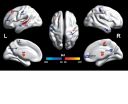(Press-News.org) Adapting to climate change could have profound environmental repercussions, according to a new study from the University of East Anglia.
Research in Nature Climate Change reveals that adaptation measures have the potential to generate further pressures and threats for both local and global ecosystems.
Lead researcher Dr Carlo Fezzi, from UEA's School of Environmental Sciences, said: "Climate change is a just a little bit more complicated than we previously thought. We need to take into account not only the direct impact of climate change, but also how people will respond to such change - the impact of adaptation.
"This is a whole new dimension to the climate change adaptation debate."
The research team looked at the interaction between agricultural land use and river water quality - both of which will be heavily impacted by climate change.
They studied land use and river quality from more than half a million records covering the whole of the UK and dating back to the early 1970s. They used computer models to predict not only how climate change would lead to agricultural changes, but how these agricultural changes would impact water quality.
"We found that a moderately warmer climate in the range of between 1oC and 3oC will be mainly beneficial for agriculture in Great Britain. Particularly in the eastern uplands and midlands, warmer temperatures will boots crop yield and allow for more livestock. But some localised losses can be expected - particularly in the east of England, where lower rainfall may increase the risk of drought.
"This intensification in agricultural practices in response to climate change, however, will also create new environmental pressures. For example changes in the agricultural sector will have a knock on effect for water quality - because they will cause increased amounts of nitrates and phosphates in streams and rivers.
"This will particularly impact the eastern uplands and midlands where temperature rises will allow significant increases in agricultural production. It will significantly increase the effort necessary to achieve water quality standards required by the EU.
"But the problem is not restricted to water quality. Adaptation may have an impact on water availability, wildlife, biodiversity, carbon policies, and the amount of recreation space.
"And of course farming is not the only industry that may need to adapt to a warmer climate. Energy demand and production, fisheries, forestry and health services would all need to adapt as well, and each would have its own knock on effects.
"This does not mean that adaptation is bad and that we should develop policies to discourage it. That would be very short-sighted.
"But we should make sure we adapt in an environmentally sustainable way. Climate change is a long-term process and science allows us to anticipate its impact on both the environment and society. This should encourage the development of forward-looking policies.
"Instead of waiting for ecosystems to be in danger and then trying to save them, we can anticipate a potential problem and do something about it before it becomes an actual threat.
"Prevention is better than cure."
'The environmental impact of climate change adaptation on land use and water quality' by Dr Carlo Fezzi, Dr Amii Harwood, Prof Andrew Lovett and Prof Ian Bateman is published in the March edition of Nature Climate Change.
INFORMATION:
Scientists should reduce antibiotic use in lab experiments - according to a researcher at the University of East Anglia.
Microbiology, molecular biology and genetic research such as the Human Genome Project use antibiotics in experiments.
But it all adds to the global problem of antibiotic resistance according to Dr Laura Bowater, from UEA's Norwich Medical School.
A new article published today in the Journal of Antimicrobial Chemotherapy highlights the problem.
Dr Bowater said: "The discovery of antibiotics was heralded as a magic bullet for modern medicine. Using ...
This news release is available in French. In 1971 there were 139,000 Canadians aged 85 and over. By 2013 their numbers had risen to 702,000. The Oldest Old as they have become known today represent 2% of the total Canadian population. "They are a demographic reality which has to be taken into account in formulating public policy", according to Jacques Légaré, a demographer at the University of Montreal, who is presenting a report on this phenomenon this week to more than a hundred experts meeting at the Population Change and Lifecourse Strategic Knowledge ...
Suspending kids from school for using marijuana is likely to lead to more -- not less -- pot use among their classmates, a new study finds.
Counseling was found to be a much more effective means of combating marijuana use. And while enforcement of anti-drug policies is a key factor in whether teens use marijuana, the way schools respond to policy violators matters greatly.
The study, conducted by researchers at the University of Washington and in Australia, compared drug policies at schools in Washington state and Victoria, Australia, to determine how they impacted ...
Deadly familial stomach and lobular breast cancers could be successfully treated at their earliest stages, or even prevented, by existing drugs that have been newly identified by cancer genetics researchers at New Zealand's University of Otago.
The researchers, led by Professor Parry Guilford, show for the first time that the key genetic mutation underlying the devastating conditions also opens them to attack through drug therapies targeting other cellular mechanisms.
There is currently no treatment for this kind of gastric cancer other than surgical removal of the ...
ANN ARBOR, Mich. -- If every new car made in the United States had a built-in blood alcohol level tester that prevented impaired drivers from driving the vehicle, how many lives could be saved, injuries prevented, and injury-related dollars left unspent?
Researchers at the University of Michigan Injury Center and the University of Michigan Transportation Research Institute studied the impact of installing these alcohol ignition interlock devices in all newly purchased vehicles over a 15-year period; their estimates of injury prevention and cost savings are significant.
They ...
Research at the University of Adelaide's Waite campus has shed light on the action of the serious agricultural pest, cereal cyst nematode, which will help progress improved resistant varieties.
Published in the journal New Phytologist, the researchers showed how the composition of the cell wall that surrounds the feeding sites of these tiny parasitic worms in the plant roots differs between resistant and susceptible varieties of barley.
"A type of fibre that we usually associate with wholegrain and healthy foods ? beta-glucan ? accumulates in the cell walls surrounding ...
Experts are calling for a global review of guidelines used to diagnose sepsis, after a study found one in eight patients with infections severe enough to need admission to an Intensive Care Unit in Australia and New Zealand, did not meet current criteria.
Researchers from Monash University and the Australian and New Zealand Intensive Care Society (ANZICS) reviewed data collected on over a million patients admitted to 172 Intensive Care Units (ICU). Covering a 14-year period, 109,663 patients with infection and organ failure were identified with possible sepsis. However, ...
The team demonstrated a quantum on/off switching time of about a millionth of a millionth of a second - the fastest-ever quantum switch to be achieved with silicon and over a thousand times faster than previous attempts.
"Quantum computing exploits the fact that, according to quantum mechanics atoms can exist in two states at once, being both excited and unexcited at the same time. This is known as a superposition state, and is most famously illustrated by Schrödinger's quantum cat which is simultaneously dead and alive" said Dr. Ellis Bowyer, one of the Surrey ...
New big data methodology can analyse over 1 billion pieces of data
The methodology can potentially isolate the areas of the brain involved with other cognitive problems, including Obsessive Compulsive Disorder, ADHD and schizophrenia.
The functional differences between autistic and non-autistic brains have been isolated for the first time, following the development of a new methodology for analysing MRI scans.
Developed by researchers at the University of Warwick, the methodology, called Brain-Wide Association Analysis (BWAS), is the first capable of creating panoramic ...
A cancer drug could be made 50 times more effective by a chemical found in stinging nettles and ants, new research finds.
Researchers at the University of Warwick found that when the chemical, Sodium Formate, is used in combination with a metal-based cancer treatment it can greatly increase its ability to shut down cancer cells.
Developed by Warwick's Department of Chemistry, the drug, a compound of the metal ruthenium called JS07, is capable of exploiting a cancer cell's natural weaknesses and disrupts its energy generation mechanism.
Laboratory tests on ovarian ...

